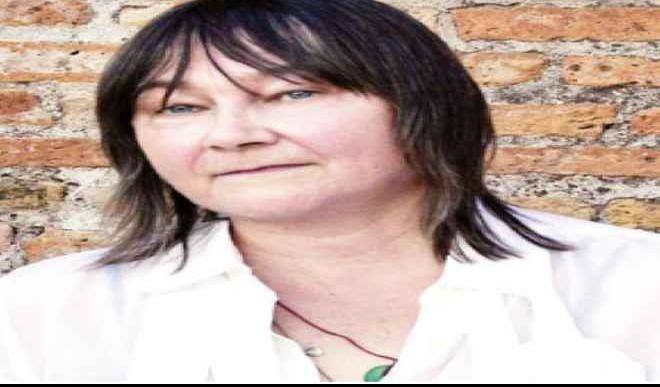Luminously beautiful
A fraught family Christmas in Cornwall is the setting for the second part of Smith’s seasonal quartet, a tender tale inspired by Dickens and Shakespeare Think of a classic winter tale, and Dickens’s A Christmas Carol might be the first to mind. It’s clearly one of the models for the second part of Ali […]


A fraught family Christmas in Cornwall is the setting for the second part of Smith’s seasonal quartet, a tender tale inspired by Dickens and Shakespeare
Think of a classic winter tale, and Dickens’s A Christmas Carol might be the first to mind. It’s clearly one of the models for the second part of Ali Smith’s seasonal quartet, a novel of great ferocity, tenderness, righteous anger and generosity of spirit that you feel Dickens would have recognised. Sophia Cleves is a Scrooge for our time, a retired businesswoman whose work always took precedence over family. Now holed up in her 15-bedroom house in Cornwall, she is, as her estranged sister, Iris, observes, “an old miserly grump who had nothing in the house for your son and his girlfriend for Christmas except a bag of walnuts and half a jar of glace cherries”.
But Sophia has not been alone; as the story opens she is chatting to a child’s disembodied head that bobs cheerfully around her like the dancing light of Christmas past. Like Scrooge’s ghosts, the head is a shape-shifter, at times taking on the form of the Green Man of legend, at others appearing more like a sculpture by Barbara Hepworth, one of the novel’s other tutelary spirits. Midnight chimes over and over for Sophia on Christmas Eve, as the narrative cuts between past and present as if being shown to the reader in a vision (“Let’s see another Christmas…”).
Names are freighted with meaning and irony here. Iris, “the wild one”, a former Greenham Common protester and lifelong activist recently returned from helping refugees in Greece, is nicknamed “Ire”. Wisdom is the one thing Sophia lacks, and must learn. Her son, Arthur, in this Cornish setting recalls England’s once and future king, except that we are told on the opening page that “romance was dead. Chivalry was dead.” Instead, he is known as Art, offering plentiful wordplay; he fancies himself as a nature writer, but his blog, Art in Nature, is made of fabricated memories and journeys (“Fake Art”), and his day job involves destroying artists by reporting them to a multinational corporation for copyright infringement.
Into this fragmented family arrives the enigmatic Lux, a Croatian student, whom Art meets at a bus stop and hires to impersonate his girlfriend over Christmas so that he won’t have to tell his mother they’ve split up. Her name recalls St Lucy, whose day used to coincide with the winter solstice, patron saint of light in darkness. As in Smith’s novel The Accidental, it is the stranger in their midst with a licence to speak the truth who shines a light on a family’s faultlines and brings healing.
There is forgiveness here, and song, and comic resolution of sorts
And over the whole story falls the long shadow of the EU referendum, as it did with her Man Booker-shortlisted predecessor, Autumn; there’s a painfully accurate comic portrait of a Christmas lunch fraught with tension between family members on different sides. Winter’s other overt model is Shakespeare’s late play Cymbeline, “about a kingdom subsumed in chaos, lies, powermongering, division and a great deal of poisoning and self-poisoning”, Sophia observes. “I was telling you about it,” Lux says, “because it’s like the people in the play are living in the same world but separately from each other, like their worlds have somehow become disjointed or broken off each other’s worlds.”
Smith’s ire has clearly not abated; Iris’s history of protest contains an acknowledgment that none of the threats she has spent the past 50 years fighting – nuclear war, chemical leaks, climate destruction – have retreated, that victories are only ever temporary. Lux’s faux-naif pronouncements on migration can feel a little like a manifesto, though heartfelt. These novels are a deliberate publishing experiment, to see how close to publication the author can capture current events; inevitably, even at a distance of months,11th-hour references to the Grenfell fire and Trump’s reclaiming of “Merry Christmas” already seem like snapshots of the past.
“Mythologiser” is one of the insults Sophia repeatedly flings at her sister, but from this author it’s high praise; Smith is engaged in an extended process of mythologising the present state of Britain, and Winter is at its most luminously beautiful when the news fades and merges with recent and ancient history, a reminder that everything is cyclical. There is forgiveness here, and song, and comic resolution of sorts, but the abiding image is of the tenacity of nature and light.
• Winter by Ali Smith is published by Hamish Hamilton
Source:Theguardian.com
